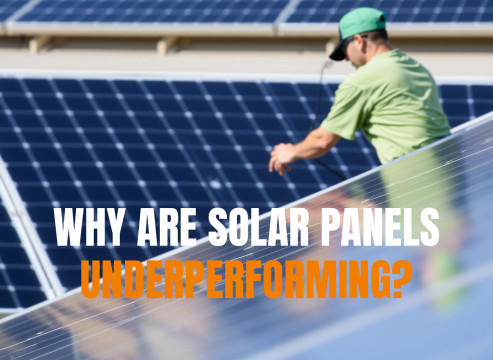
Why Are Solar Panels Underperforming?
Solar panels are a popular choice for renewable energy, but many users experience underperformance that can be frustrating and costly. Understanding the reasons behind solar panel underperformance is crucial for optimizing their efficiency and ensuring a good return on investment. Here are some common causes of solar panel underperformance and potential solutions.
Common Causes of Solar Panel Underperformance
1. Shading
Shading is one of the most significant factors affecting solar panel performance. Even partial shading from nearby trees, buildings, or other obstructions can drastically reduce energy output—by as much as 80% in some cases. The impact of shading is particularly pronounced in systems without bypass diodes, which help mitigate losses from shaded cells.
Solution: To address shading issues, consider trimming or removing obstructing vegetation or relocating panels to sunnier locations. Regular monitoring can help identify shading problems early.
2. Dirt and Debris Accumulation
Dust, dirt, bird droppings, and other debris can accumulate on solar panels over time, blocking sunlight and reducing their efficiency. This is especially problematic for panels mounted at an angle, where debris can settle more easily.
Solution: Regular cleaning is essential to maintain optimal performance. A soft brush or cloth with water can effectively remove dirt. For hard-to-reach installations, hiring a professional cleaning service may be necessary.
3. Faulty Wiring
Improperly connected or damaged wiring can lead to resistance in the system, decreasing energy flow and overall output. Faulty wiring may also pose safety risks, including electrical arcing.
Solution: If wiring issues are suspected, it’s crucial to have a qualified technician inspect the system to identify and repair any faults.
4. Inverter Malfunctions
The inverter plays a critical role in converting direct current (DC) generated by solar panels into alternating current (AC) used by homes and businesses. If the inverter fails or malfunctions, the entire system's performance can be compromised.
Solution: Regular maintenance checks on the inverter are essential. If problems arise, a professional evaluation can determine whether repairs or replacement are needed.
5. Aging Panels
Solar panels typically have a lifespan of around 25 years. As they age, their efficiency naturally declines due to wear and tear from environmental exposure.
Solution: If older panels are underperforming significantly, upgrading to newer, more efficient models may be worthwhile. Investing in high-quality components can also prolong the lifespan of a solar system.
6. Poor Quality Components
The quality of solar components—including panels and inverters—affects overall system performance. Low-quality materials or improper installation can lead to reduced efficiency and increased maintenance needs over time.
Solution: Ensuring high-quality components are used during installation and regular maintenance checks can help mitigate these issues.
7. Environmental Factors
Extreme weather conditions—such as heavy rain, snow accumulation, or high temperatures—can affect solar panel performance. For instance, snow covering the panels will block sunlight entirely until it melts away.
Solution: Installing panels at an optimal angle can help minimize snow accumulation. Additionally, monitoring weather conditions can inform maintenance schedules.
Conclusion
Solar panel underperformance can stem from various factors ranging from environmental issues to equipment failure. By understanding these causes and implementing appropriate solutions—such as regular cleaning, professional inspections, and timely upgrades—solar panel owners can maximize their investment in renewable energy.
Maintaining awareness of these factors not only enhances the efficiency of solar systems but also contributes to long-term sustainability goals by ensuring that renewable energy sources operate at their full potential.

